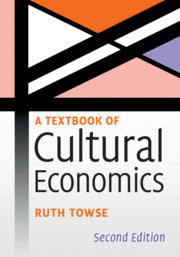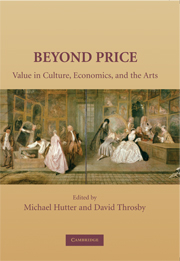The Economics of Cultural Policy
Cultural policy is changing. Traditionally, cultural policies have been concerned with providing financial support for the arts, for cultural heritage and for institutions such as museums and galleries. In recent years, around the world, interest has grown in the creative industries as a source of innovation and economic dynamism. This book argues that an understanding of the nature of both the economic and the cultural value created by the cultural sector is essential to good policy-making. The book is the first comprehensive account of the application of economic theory and analysis to the broad field of cultural policy. It deals with general principles of policy-making in the cultural arena as seen from an economic point of view, and goes on to examine a range of specific cultural policy areas, including the arts, heritage, the cultural industries, urban development, tourism, education, trade, cultural diversity, economic development, intellectual property and cultural statistics.
- The first book to provide a comprehensive account of the application of economics to problems in cultural policy
- Non-technical and accessible to researchers, academics, policy analysts and practical policy-makers
- Not based on a single country or group of countries but international in scope and relevance, using examples from all around the world
Reviews & endorsements
"As is to be expected of this leading writer on the economics of the arts, this book is yet another valuable contribution. It covers areas not previously well trodden and covers a subject of vital importance for the flourishing of the arts. Well written, as pieces by Throsby always are, it will add to the enjoyment as well as knowledge and understanding of its readers." - William J. Baumol, Harold Price Professor of Entrepreneurship, Leonard N. Stern School of Business, New York University
"David Throsby has again met the challenge of making cultural economics accessible to non-specialists while maintaining the interest of more specialised readers. His summaries of the various theories and their application to cultural policy could not be bettered and demonstrate his thorough understanding of both. I can recommend the book to everyone concerned with cultural economics and with cultural policy." - Ruth Towse, Professor of Economics of Creative Industries, Bournemouth University and Professor Emerita, Erasmus University Rotterdam
Product details
July 2010Paperback
9780521687843
291 pages
229 × 152 × 14 mm
0.48kg
Available
Table of Contents
- List of abbreviations
- Preface
- Acknowledgements
- 1. Introduction
- 2. The scope of cultural policy
- 3. The policy process
- 4. Arts policy
- 5. Cultural industries
- 6. Cultural heritage
- 7. Culture in urban and regional development
- 8. Tourism
- 9. Culture in the international economy
- 10. Cultural diversity
- 11. Arts education
- 12. Culture in economic development
- 13. Intellectual property
- 14. Cultural statistics
- 15. Conclusions
- References
- Index.






